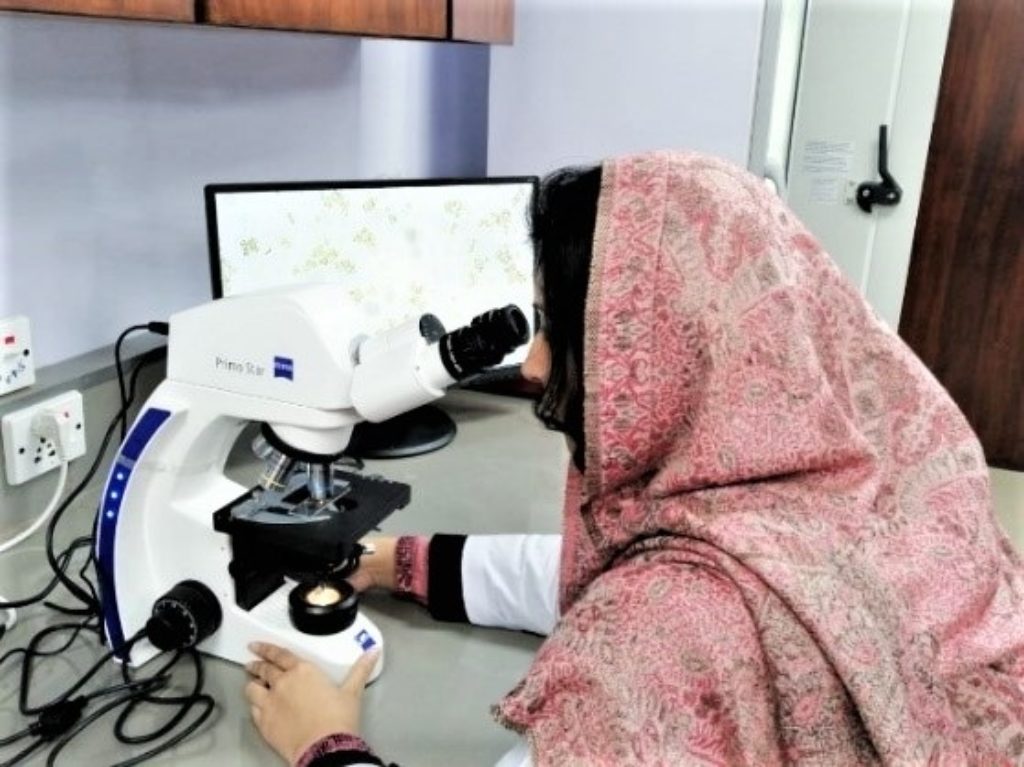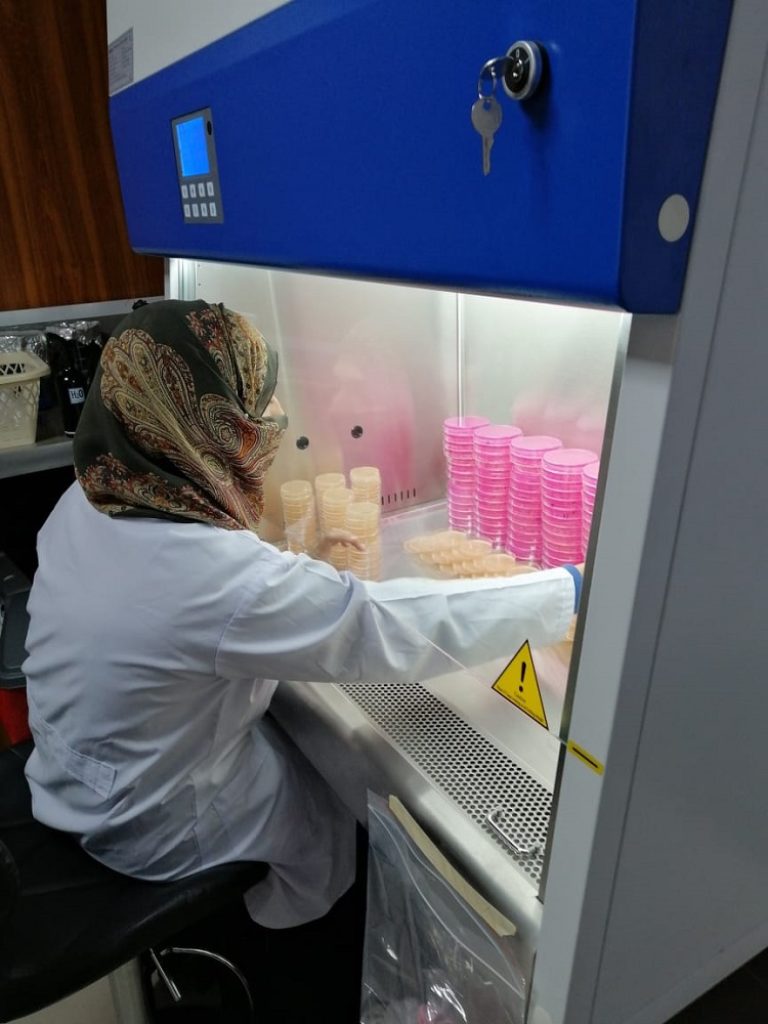
The first biological control laboratory to research poisonous aflatoxins has been created in Pakistan as part of a collaboration between CABI and the Crop Diseases Research Institute (CDRI) at the nation’s National Agricultural Research Centre (NARC).
The facility, under the Aflatoxin Control Programme in Pakistan, aims to ensure the state of food security in the country by validating an eco-friendly biocontrol to diminish poisonous aflatoxins which have the potential to decimate crops such as maize, wheat and rice.
Aflatoxins are a group of toxins produced by certain fungi – Aspergillus flavus. These aflatoxins are toxic and can also cause serious health problems for humans and livestock. According to the US National Cancer Institute, for example, aflatoxins can lead to an increased risk of liver cancer. Because of the problems within the food chain they consequently affect a country’s ability to trade.
Under the public-private partnership programme led by the United States Department of Agriculture (USDA) alongside US company Ingredion and its subsidiary in Pakistan, Rafhan Maize Products Co. Ltd, researchers are currently engaged in the design, implementation and analysis of the performance and efficacy of the biological control product – known locally as AflaPakTM.
CDRI’s primary role is to multiply and validate atoxigenic strain on maize crop which is further developed by Rafhan Maize for the use of farmer to control aflatoxin in maize crop.
The biocontrol lab has been established at CDRI with support of USDA to strengthen the research capability of CDRI under the umbrella of the Aflatoxin Control Programme. Dr Atif Jamal, Senior Scientific Officer at CDRI, added that this is first biological control laboratory in Pakistan which will replicate the aflatoxin control research on the pattern of advanced research being done in USA.

CDRI is looking forward to playing its part in capacity developed on national system by providing training to students, researchers and extension agents. They further aim to replicate this AflaPakTM technology to other crops like rice, groundnut and chillies to make them safe from contamination of aflatoxins.
Dr Shahzad Asad, Director of CDRI, said that this project will set a direction to explore the area of aflatoxins and its management through research and development.
Dr Sabyan Faris Honey, Project Manager Aflatoxins Control Programme at CABI, added that being lead agency of this project CABI is fully engaging partners like the CDRI to do the novel research on aflatoxin control to ensure the food security of the country.
Additional information
Aflatoxin Control Programme
Find out more about CABI’s work on aflatoxin control in Pakistan.
Authors:
Dr Babar E. Bajwa – Project Executive
Dr Sabyan Faris Honey – Project Manager
Contributors:
Dr Hamza Shahbaz Bhatti
Dr Muzzamil Farooq
Mr Saqib Ali
For more information, please contact:
Deborah Hamilton
USDA
202-720-0335
Deborah.Hamilton2@usda.gov
1 Comment
Leave a Reply
Related News & Blogs
Tripartite collaboration highlights sustainable biological control to fight crop pests in China and South-East Asia
The power of tripartite collaboration has been highlighted at a workshop focused on sustainable biological control and Integrated Pest Management (IPM) to fight a range of major crop pests in China and South-East Asia, particularly Malaysia. CABI, the…
22 January 2025





Congratulations and highest level of appreciation for developing aflatoxin biological control measures.